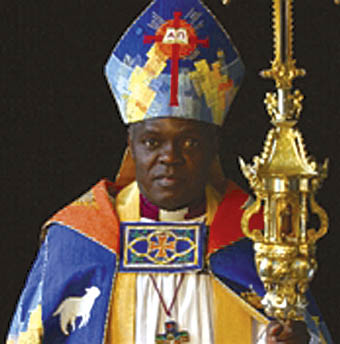|
|
 |
| |
|
| |
Englishness is back on the agenda – but what is it?
John Sentamu, the Archbishop of York considers English patriotism in our ethnically diverse 21st-century country
ONE of the consequences of the recent attacks by so called “home grown terrorists” has been to ask the question of what it means to be English? Can there be a narrative, an identity that we can all share, flexible enough to recognise the new aspects of England whilst remaining authentic enough to proudly name and recognise England’s own history?
Where there is no awareness of identity, there is a vacuum to be filled. Dissatisfaction with one’s heritage creates an opening for extremist ideologies.
Whether it be the terror of Salafi-jihadism or the insidious institutional racism and bigotry of the British National Party, there are those who stand ready to fill the vacuum with a sanitised identity and twisted vision, if the silent majority are reticent in forging a new identity. When hateful and vile slogans are shouted at returning soldiers as they march through our towns, Joe and Jane Public should gather in large numbers to demonstrate peaceably that such bigotry has no place in England’s green and pleasant land.
To be patriotic, is to appreciate and be grateful for all that is valuable in the country you live in. It does not require you to be a xenophobe or a blinkered nationalist.
The failure to recognise and to appreciate the goodly heritage of one’s country of residence is a sign of an all-round ingratitude. Ingratitude in turn breeds cynicism. As Oscar Wilde had it in Lady Windermere’s Fan, “A cynic is a man who knows the price of everything and the value of nothing”. A cynic has no obligations, only criticisms.
The American member of the Sojourner community, Jim Wallis, on a recent visit to the UK warned: “Hope or cynicism, that’s the choice facing your society”.
Sociologists tell us that children of dual heritage, whose parents have blood from different continents running through their veins, are being born more than ever before in this country’s history. Is it not the greatest of ironies that for such children, the heritage of a parent who may be from a Commonwealth country may be easier to identify or signify than the one belonging to the land into which they are born?
Some English people don’t like to say anything about their heritage, for fear of upsetting newcomers.
My question to them is simple: Why do you think we came here?
There is something very attractive about the United Kingdom. That is why people stay!
As a boy in Uganda, I was taught by British missionaries. Just as foreigners brought the Christian Faith to England and the rest of the UK, so British foreigners handed on the baton to me, my family and my forebears.
I am grateful, and I say a big thank you to all your forebears who risked their lives in coming to my country, bringing the medicine of the Gospel, health, education and good governance.
All I am doing now is to remind the English of what they taught me. Let us recognise collectively the enormous treasure that sits in our cultural and spiritual vaults. Let’s draw upon the riches of our heritage and find a sense of purpose for those who are thrashing around for meaning and settling for second best.
Let us not forego our appreciation of an English identity for fear of upset or offence to those who claim such an identity has no place in a society; where there are people of other cultures and religions present.
Englishness is not diminished by newcomers who each bring with them a new strand to England’s fabric, rather Englishness is emboldened to grow anew. The truth is that an all embracing England, confident and hopeful in her own identity, is something to celebrate. Let us acknowledge and enjoy the gift of Englishness.
|
 |
|
 |
|
 |
|

